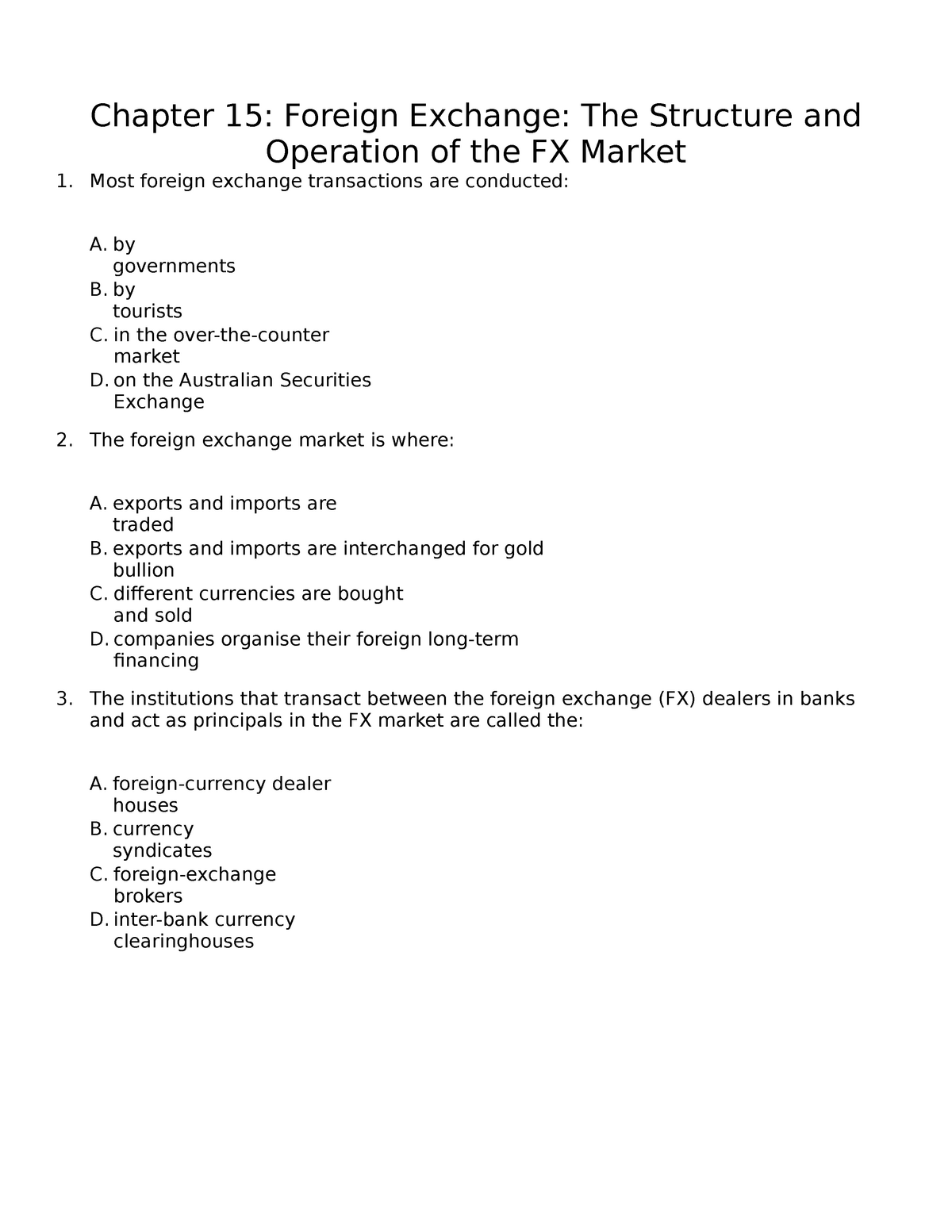
You should take several factors into consideration when selecting a forex broker. A broker should have the ability to supply liquidity from at least two sources. A broker should have at least two sources of liquidity to offer liquidity in different asset types. Brokers may not be able to develop this technology on their own. Contractors are often used by brokers to provide back-office functionality, payment systems, connectors and bridges. This dependence can make it difficult for you to switch providers.
XTB
XTB is a trusted broker in the forex markets, with more that 500,000 retail customers using its services. The brokerage provides excellent customer support, offering phone support Monday through Friday as well as live chat on weekends. This makes Plus500 even better than XTB with its 24-hour availability. You can read our reviews to learn more about forex brokers and make your own decision.

CMC Markets
CMC Markets is a good option for people who want to trade foreign exchange, but are unsure how to go about it. The company's homepage has links that will help you register. The basic information you will need is your name, address (including national insurance number), tax status, and national insurance number. Once you have registered, fill out the required fields to verify your personal data.
Soft-FX
Soft-FX is a fintech company with more than 8 years of experience in creating IT products. Its solution is robust and secure against DDoS attacks. Its API can be used with Web Sockets and FIX protocols. Clients can also use it as a consumer. The unique liquidity aggregation feature allows you to manage accounts for clients.
XETRA
A XETRA forex broker is a trusted choice if you're in search of a forex broker who has a reputation for integrity. Deutsche Borse AG controls Xetra. It is a paneuropean trading platform. It allows for efficient, fast, and cost-effective trading of a variety of securities. There are many advantages to using a Xetra brokerage, such as their high turnover rate and low cost trading.

XM
XM lets you trade in 57 currency pairs. Spreads start at 0 pips and no requotes are required. Besides forex, XM also offers 17 commodities, including soft, hard, and energy markets. CFD trading is possible on all commodities and there are no conversion fees. CFD trading can also be done on over 30 global indices such as gold, silver and crude oil.
FAQ
What is a bond?
A bond agreement is an agreement between two or more parties in which money is exchanged for goods and/or services. Also known as a contract, it is also called a bond agreement.
A bond is typically written on paper and signed between the parties. The bond document will include details such as the date, amount due and interest rate.
The bond is used for risks such as the possibility of a business failing or someone breaking a promise.
Sometimes bonds can be used with other types loans like mortgages. This means that the borrower must pay back the loan plus any interest payments.
Bonds can also help raise money for major projects, such as the construction of roads and bridges or hospitals.
A bond becomes due when it matures. That means the owner of the bond gets paid back the principal sum plus any interest.
Lenders can lose their money if they fail to pay back a bond.
How do you invest in the stock exchange?
You can buy or sell securities through brokers. Brokers buy and sell securities for you. When you trade securities, you pay brokerage commissions.
Banks charge lower fees for brokers than they do for banks. Because they don't make money selling securities, banks often offer higher rates.
An account must be opened with a broker or bank if you plan to invest in stock.
If you use a broker, he will tell you how much it costs to buy or sell securities. This fee is based upon the size of each transaction.
Ask your broker about:
-
You must deposit a minimum amount to begin trading
-
How much additional charges will apply if you close your account before the expiration date
-
what happens if you lose more than $5,000 in one day
-
How long can you hold positions while not paying taxes?
-
How much you can borrow against your portfolio
-
Transfer funds between accounts
-
How long it takes to settle transactions
-
The best way for you to buy or trade securities
-
How to Avoid Fraud
-
How to get help when you need it
-
Can you stop trading at any point?
-
How to report trades to government
-
Whether you are required to file reports with SEC
-
Do you have to keep records about your transactions?
-
whether you are required to register with the SEC
-
What is registration?
-
What does it mean for me?
-
Who must be registered
-
What time do I need register?
What role does the Securities and Exchange Commission play?
SEC regulates securities brokers, investment companies and securities exchanges. It enforces federal securities laws.
What Is a Stock Exchange?
Companies sell shares of their company on a stock market. This allows investors to purchase shares in the company. The market sets the price of the share. It is usually based on how much people are willing to pay for the company.
Companies can also raise capital from investors through the stock exchange. To help companies grow, investors invest money. This is done by purchasing shares in the company. Companies use their money for expansion and funding of their projects.
A stock exchange can have many different types of shares. Some of these shares are called ordinary shares. These are the most commonly traded shares. Ordinary shares are bought and sold in the open market. Prices for shares are determined by supply/demand.
There are also preferred shares and debt securities. Preferred shares are given priority over other shares when dividends are paid. These bonds are issued by the company and must be repaid.
What are the benefits of investing in a mutual fund?
-
Low cost - Buying shares directly from a company can be expensive. It is cheaper to buy shares via a mutual fund.
-
Diversification - most mutual funds contain a variety of different securities. One type of security will lose value while others will increase in value.
-
Professional management - professional mangers ensure that the fund only holds securities that are compatible with its objectives.
-
Liquidity - mutual funds offer ready access to cash. You can withdraw the money whenever and wherever you want.
-
Tax efficiency- Mutual funds can be tax efficient. You don't need to worry about capital gains and losses until you sell your shares.
-
Purchase and sale of shares come with no transaction charges or commissions.
-
Mutual funds can be used easily - they are very easy to invest. All you need is money and a bank card.
-
Flexibility - You can modify your holdings as many times as you wish without paying additional fees.
-
Access to information: You can see what's happening in the fund and its performance.
-
Investment advice - you can ask questions and get answers from the fund manager.
-
Security - You know exactly what type of security you have.
-
You can take control of the fund's investment decisions.
-
Portfolio tracking: You can track your portfolio's performance over time.
-
Easy withdrawal: You can easily withdraw funds.
What are the disadvantages of investing with mutual funds?
-
Limited choice - not every possible investment opportunity is available in a mutual fund.
-
High expense ratio - Brokerage charges, administrative fees and operating expenses are some of the costs associated with owning shares in a mutual fund. These expenses will reduce your returns.
-
Lack of liquidity-Many mutual funds refuse to accept deposits. These mutual funds must be purchased using cash. This limits your investment options.
-
Poor customer service - there is no single contact point for customers to complain about problems with a mutual fund. Instead, contact the broker, administrator, or salesperson of the mutual fund.
-
Ridiculous - If the fund is insolvent, you may lose everything.
Statistics
- Ratchet down that 10% if you don't yet have a healthy emergency fund and 10% to 15% of your income funneled into a retirement savings account. (nerdwallet.com)
- The S&P 500 has grown about 10.5% per year since its establishment in the 1920s. (investopedia.com)
- Even if you find talent for trading stocks, allocating more than 10% of your portfolio to an individual stock can expose your savings to too much volatility. (nerdwallet.com)
- "If all of your money's in one stock, you could potentially lose 50% of it overnight," Moore says. (nerdwallet.com)
External Links
How To
How can I invest my money in bonds?
An investment fund is called a bond. They pay you back at regular intervals, despite the low interest rates. These interest rates can be repaid at regular intervals, which means you will make more money.
There are many ways to invest in bonds.
-
Directly buying individual bonds.
-
Buy shares from a bond-fund fund
-
Investing with a broker or bank
-
Investing through a financial institution
-
Investing in a pension.
-
Directly invest through a stockbroker
-
Investing via a mutual fund
-
Investing through a unit-trust
-
Investing via a life policy
-
Investing with a private equity firm
-
Investing via an index-linked fund
-
Investing through a hedge fund.